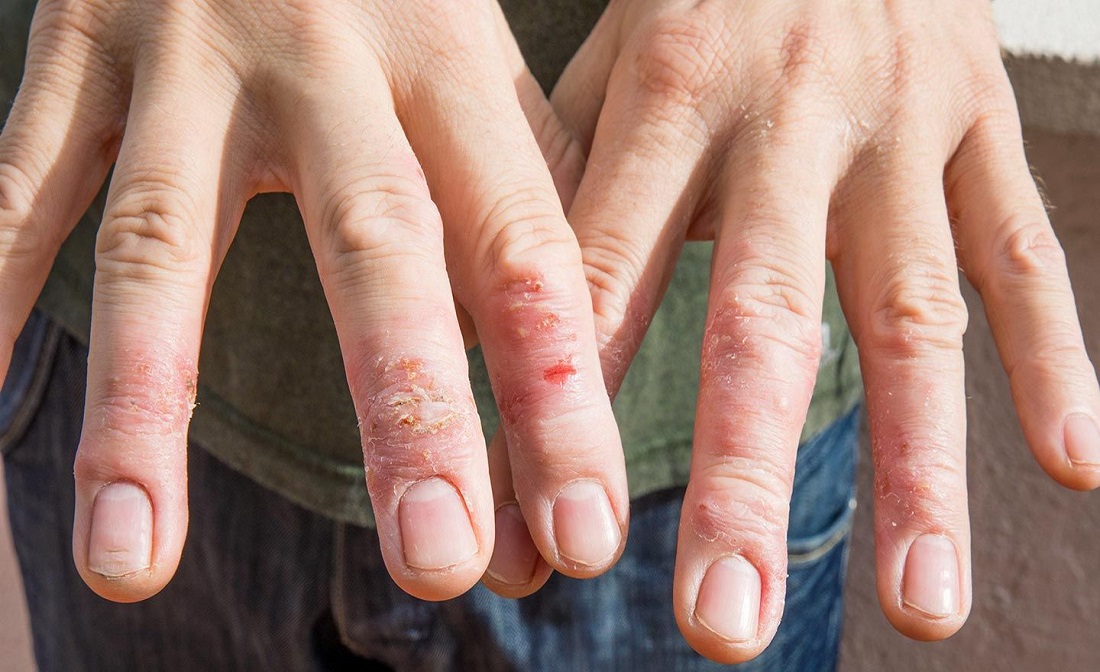
Skin disorders encompass a wide range of conditions that affect the skin's appearance, texture, and function. These disorders can result from various factors, including genetics, immune system dysfunction, infections, allergies, hormonal imbalances, environmental factors, and lifestyle habits. Here are some common skin disorders:
Acne: Acne is a common skin condition characterized by the formation of pimples, blackheads, whiteheads, and cysts on the face, chest, back, and other areas of the body. It occurs when hair follicles become clogged with oil and dead skin cells, leading to inflammation and bacterial overgrowth.
Eczema (Atopic Dermatitis): Eczema is a chronic inflammatory skin condition characterized by dry, itchy, red, and inflamed patches of skin. It often develops in childhood and may be associated with allergies, asthma, or hay fever. Triggers for eczema can include irritants, allergens, stress, and weather changes.
Psoriasis: Psoriasis is a chronic autoimmune skin condition characterized by the rapid proliferation of skin cells, leading to the formation of thick, red, scaly patches known as plaques. Psoriasis can occur anywhere on the body and may be associated with joint pain and inflammation (psoriatic arthritis).
Rosacea: Rosacea is a chronic inflammatory skin condition characterized by facial redness, flushing, visible blood vessels, and acne-like bumps. It typically affects the central part of the face, including the cheeks, nose, chin, and forehead. Triggers for rosacea can include sunlight, heat, spicy foods, alcohol, and stress.
Dermatitis: Dermatitis refers to inflammation of the skin and can manifest in various forms, including contact dermatitis (caused by contact with irritants or allergens), seborrheic dermatitis (associated with oily skin and dandruff), and allergic dermatitis (caused by an allergic reaction to substances like metals, latex, or cosmetics).
Fungal Infections: Fungal infections of the skin, such as ringworm (tinea corporis), athlete's foot (tinea pedis), and jock itch (tinea cruris), are caused by fungi that thrive in warm, moist environments. These infections can cause redness, itching, scaling, and discomfort and are often treated with antifungal medications.
Hives (Urticaria): Hives are raised, itchy welts on the skin that occur due to an allergic reaction or other triggers, such as stress, medications, or infections. Hives can appear suddenly and may disappear within a few hours or days but can be recurrent in some cases.
Vitiligo: Vitiligo is a skin disorder characterized by the loss of skin pigment, resulting in white patches or depigmentation on the skin. The exact cause of vitiligo is unknown, but it is believed to involve autoimmune factors that attack melanocytes, the cells responsible for producing skin pigment.
Warts: Warts are benign growths on the skin. They can appear as small, rough bumps on the hands, feet, or other parts of the body.
According to Ayurveda all the above disorders are treated with the help of panchakarma and ayurvedic formulation. the line of treatment is decided according to the imbalance in vata. pitta and kapha in the body. It's essential to consult a doctor for an accurate diagnosis and appropriate treatment for any skin disorder. Treatment options may include medications, topical treatments, lifestyle modifications, and supportive therapies to manage symptoms and promote skin health.


